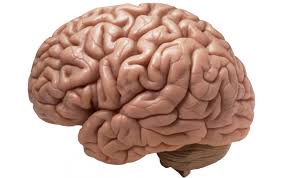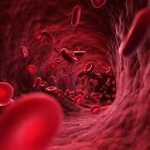AMAZING SCIENCE FACTS ABOUT THE HUMAN BRAIN
The brain is part of your body’s central nervous system. It’s the most complicated part of your body. It has the ability to send and receive a large amount of information. Because of this, there are some things doctors and scientists don’t completely understand yet about it. Here are some quick facts to help you understand the most complicated organ in your body:
- About 75% of the brain is made up of water: This means that dehydration, even as small as 2%, can have a negative effect on brain functions. Dehydration and a loss of sodium and electrolytes can cause acute changes in memory and attention. To prevent any loss of body or brain function, take steps to keep your body properly hydrated.
- The brain can’t feel pain: There are no pain receptors in the brain itself. But the meninges (coverings around the brain), periosteum (coverings on the bones), and the scalp all have pain receptors. Surgery can be done on the brain and technically the brain does not feel that pain even as it interprets pain signals sent to it.
- Brain activity can power a small light bulb: When you are awake, your brain generates about 12-25 watts of electricity – which is enough to power a small light bulb. The brain also works fast. The information going from your arms/legs to your brain travels at a speed of 150-260 miles per hour. The brain consumes glucose from the body to produce this amount of the energy.
- Headaches are caused by a chemical reaction in your brain combined with the muscles and nerves of your neck and head: Chemical activity in your brain, the nerves or blood vessels surrounding your skull, or the muscles of your head and neck (or some combination of these factors) can play a role in primary headaches. Serotonin is a chemical necessary for communication between nerve cells. When serotonin or estrogen levels change, the result for some is a headache or migraine. Serotonin levels may affect both sexes, while fluctuating estrogen levels affect women only.
- Your brain uses 20 percent of the total amount of oxygen and blood in your body: Your brain needs a constant supply of oxygen. As little as five minutes without oxygen can cause some brain cells to die, leading to severe brain damage. Also, the harder you think the more oxygen and fuel your brain will use from your blood – up to 50%. Every minute, 750-1,000 milliliters of blood flows through the brain.
- Your brain’s storage capacity is considered virtually unlimited: Research suggests the human brain consists of about 86 billion neurons. Each neuron forms connections to other neurons, which could add up to 1 quadrillion (1,000 trillion) connections. Over time, these neurons can combine, increasing storage capacity. However, in Alzheimer’s disease, for example, many neurons can become damaged and stop working, particularly affecting memory.
- Reading aloud promotes brain development: Reading aloud promotes brain development. It’s indeed one of the strange facts about the brain because we usually teach our children to read and talk politely. But to promote brain development in your child, you should read and talk aloud in front of them.
- Feeling tired? Go ahead and yawn: Yawning cools down the brain, research suggests. Sleep deprivation raises brain temperature.
There’s a lot about the brain that doctors and scientists still don’t completely understand. However, they’re learning more each day. There are still a lot of interesting things to be learned about the part of you that does the most work. Just like the rest of your body, the brain needs a healthy diet, exercise and the right amount of sleep to perform its best.
Compiled by Saviour Okine






